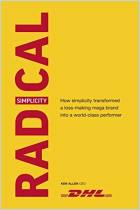Acesse a sua conta getAbstract para obter o resumo!

Acesse a sua conta getAbstract para obter o resumo!
Matthew Campbell
Is Emirates Airline Running Out of Sky?
It flies the fanciest product on the biggest planes on the longest routes. There might not be much more room to soar
Bloomberg Businessweek , 2017
Sobre o que é?
For years, the airline Emirates has leveraged increasing globalism. Can it adapt to a more competitive, protectionist world?
Recommendation
Dubai-based airline Emirates wants to offer its passengers only the best: the newest airplanes, the highest degree of comfort, the fastest connection times and the longest flight routes. But Emirates’s path toward continued expansion may soon face a dead end. Bloomberg Businessweek senior reporter Matthew Campbell charts Emirates’s rise to prominence and explores why shifts toward more protectionist trade policies, competition from other airlines and technological developments like the advent of “lighter, fuel-efficient jets” could curb its future growth. getAbstract recommends this article to airline industry professionals and political trendwatchers.
Summary
About the Author
Matthew Campbell is a reporter at Bloomberg Businessweek, covering big business, geopolitics and economics.





















Comment on this summary